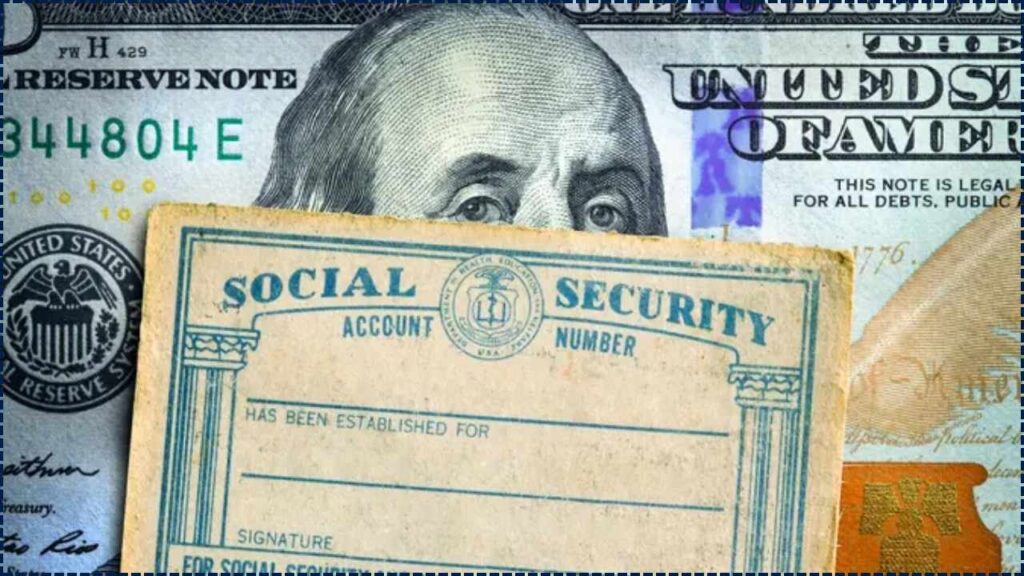Deciding when to start collecting Social Security benefits is one of the most important financial decisions you’ll make as you approach retirement. Many Americans wonder if it’s better to collect benefits as soon as possible or wait until they reach Full Retirement Age (FRA) or beyond. While it may sound appealing to start collecting Social Security early at age 62, this decision comes with a major financial consequence that could affect your long-term retirement income.

The big effect you need to know is that collecting Social Security early results in a permanent reduction in the monthly benefits you receive. This reduction can be significant, and understanding its impact is key to making an informed decision about when to begin claiming. In this article, we’ll explain how this reduction works, the pros and cons of claiming early, and what you should consider when deciding the best time to collect.
Collecting Social Security Early
| Topic | Details |
|---|---|
| Early Social Security Benefits | Collecting early reduces your monthly benefit by up to 30% if you claim at age 62. |
| Full Retirement Age (FRA) | FRA is 67 for people born in 1960 or later. |
| Delayed Benefits Increase | For each year you delay collecting beyond FRA, benefits increase by 8% per year until age 70. |
| Impact on Spousal Benefits | Early claiming reduces the spousal benefit, which can affect couples’ combined Social Security income. |
| Earnings and Social Security | If you work while collecting early, you could lose benefits if you exceed certain income limits before FRA. |
| Long-Term Financial Strategy | Deciding when to claim depends on health, longevity, financial needs, and other personal factors. |
Deciding when to claim Social Security benefits is a major decision with long-term consequences. If you claim benefits early, you’ll receive reduced monthly payments for the rest of your life. However, there are situations where early claiming might make sense—such as if you need income immediately or if you don’t expect to live to an older age.
Ultimately, the timing of when to claim depends on your personal situation, health, financial needs, and spousal considerations. Consulting a financial planner can help you evaluate the best strategy for your retirement, so you can ensure that your Social Security benefits meet your needs in the long run.

Understanding the Basics of Social Security
Social Security benefits are designed to provide income during retirement, and you earn these benefits throughout your working life by paying into the system through payroll taxes. However, the timing of when you begin to claim these benefits plays a huge role in how much you receive each month.
Your Full Retirement Age (FRA) is the age at which you can start receiving your full, unreduced Social Security benefit. For those born after 1960, FRA is 67. However, you are allowed to start claiming benefits as early as age 62.
The One Big Effect – Early Claiming Reduces Your Benefit
The main reason the decision to claim early is so impactful is the reduction in monthly benefits. If you start collecting Social Security at age 62, your monthly benefits will be reduced by up to 30% compared to what you would receive if you waited until your FRA of 67. This reduction is permanent—meaning that once you start collecting at a reduced rate, you’ll never get that full amount back.
Example:
Let’s say your Full Retirement Age benefit is $2,000 per month. If you start claiming at age 62, you could see your monthly payment drop by about 30%—leaving you with only $1,400 per month. This means that while you will start receiving benefits earlier, you will receive significantly less each month throughout retirement.
When Should You Claim Social Security?
1. Claiming Early (Age 62)
For some people, claiming early may be appealing due to immediate financial needs. Whether you need the money to cover living expenses or you prefer to start enjoying your retirement early, claiming at age 62 provides early access to your benefits.
However, it’s important to weigh the long-term costs. While the reduction in benefits is permanent, there is also the consideration of whether you will live long enough to make up for the lost income.
2. Claiming at Full Retirement Age (67)
Claiming at Full Retirement Age (FRA) allows you to receive 100% of your monthly benefit. For those born after 1960, FRA is 67. Claiming at FRA avoids any permanent reduction in benefits, and it offers a balanced approach to starting retirement without sacrificing long-term income.
3. Delaying Benefits Beyond FRA (Age 70)
Delaying benefits until age 70 offers the maximum benefit possible. For each year you wait beyond FRA, your benefit increases by 8% per year. This could add up to a 32% increase in monthly payments for people who wait until 70.
For example, if your FRA benefit is $2,000 per month, waiting until 70 would increase it to about $2,640 per month.
While the additional income is appealing, it’s important to consider how long you may live. If you need income sooner or have health concerns, delaying may not be the best choice. However, for those in good health and with the ability to delay, waiting can offer a larger, more secure monthly income later in life.
Social Security and Working Before Full Retirement Age
If you choose to claim Social Security benefits before your Full Retirement Age (FRA), your earnings may impact your benefits. The Social Security Administration has an earnings test that can reduce your benefits if your income exceeds a certain limit.
In 2025, for instance, if you’re under FRA for the entire year, $1 in benefits will be withheld for every $2 you earn above $23,400. Once you reach FRA, there is no penalty for working and earning above this limit.
This is something to keep in mind if you plan on working part-time or full-time after you begin collecting benefits. The earnings test can reduce the total amount of Social Security you receive until you reach FRA.
The Effect on Spousal Benefits
When you begin collecting Social Security early, it doesn’t just affect your benefit. If you are married, it can also impact your spousal benefits. A spouse who has not earned enough credits on their own can receive up to 50% of the higher earner’s benefit at full retirement age. However, if either spouse claims early, the spousal benefit will be reduced as well.
For example, if one spouse’s benefit is $2,000 per month and the other spouse claims a spousal benefit of 50%, they would receive $1,000 at FRA. If the higher earner claims at age 62, their monthly benefit will be reduced to $1,400, and the spouse’s benefit will be reduced accordingly.
Related Links
If You Have One of These 13 Conditions, Social Security May Send Your Benefits Sooner
2026 Minimum Wage Hike? What California Workers Could Earn Per Hour Soon
What Should You Consider Before Deciding?
1. Longevity
One of the biggest factors in deciding when to claim Social Security is how long you expect to live. If you’re in poor health and don’t expect to live to an older age, claiming early may be the best financial decision. If you’re healthy and expect to live a long life, delaying benefits could result in a larger total payout over your lifetime.
2. Financial Needs
If you need immediate income for living expenses, claiming early could be your only option. However, if you have other sources of income, like a pension or savings, you may want to consider waiting to maximize your benefits.
3. Spousal Benefits
If you’re married, consider how your decision to claim early will impact your spouse’s benefits. You may want to coordinate your claiming strategy with your spouse to maximize total household benefits.
4. Work Plans
If you plan to continue working, you’ll need to understand how the earnings test will affect your benefits before you reach FRA. For many, working while claiming early may reduce the amount of Social Security they receive until they reach FRA.
FAQs
1. How much will my Social Security benefits be reduced if I claim early?
If you claim benefits at age 62, your monthly benefit could be reduced by up to 30% compared to the amount you’d receive at your Full Retirement Age (FRA).
2. Can I start Social Security at 62 and still work?
Yes, you can start claiming Social Security at 62 while still working. However, if you earn more than the annual limit set by the Social Security Administration, your benefits will be temporarily reduced.
3. What happens to my spouse’s benefits if I claim early?
If you claim early, your spousal benefits will also be reduced. The reduction depends on when both spouses begin claiming.
4. Should I wait until 70 to claim Social Security?
If you’re in good health and can afford to wait, delaying your benefits until age 70 increases your monthly payout by 8% per year. This can be especially beneficial if you expect to live a long time.





